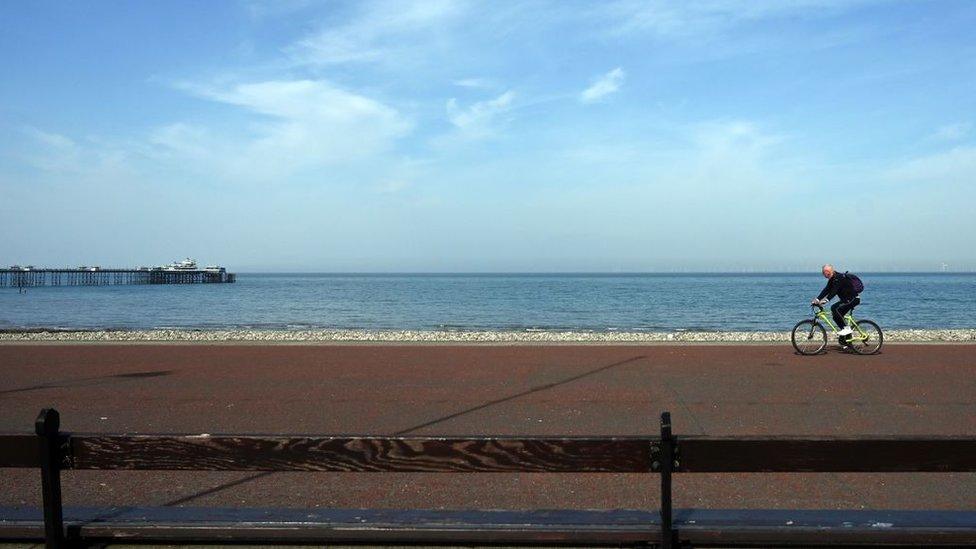Bike theft: How can I protect my bike?
- Published
The Bikeability Trust's Paul Robison breaks down how to start cycling with confidence.
Since lockdown began there have been more cyclists on the roads, shops have reported record sales of bicycles and some customers have found it tricky to get their hands on them.
But with this surge in popularity comes an increase in the number of thefts reported to national cycle database BikeRegister.
So as the government encourages more people in England to get on their bikes with a voucher scheme, what can cyclists do to protect their bikes?
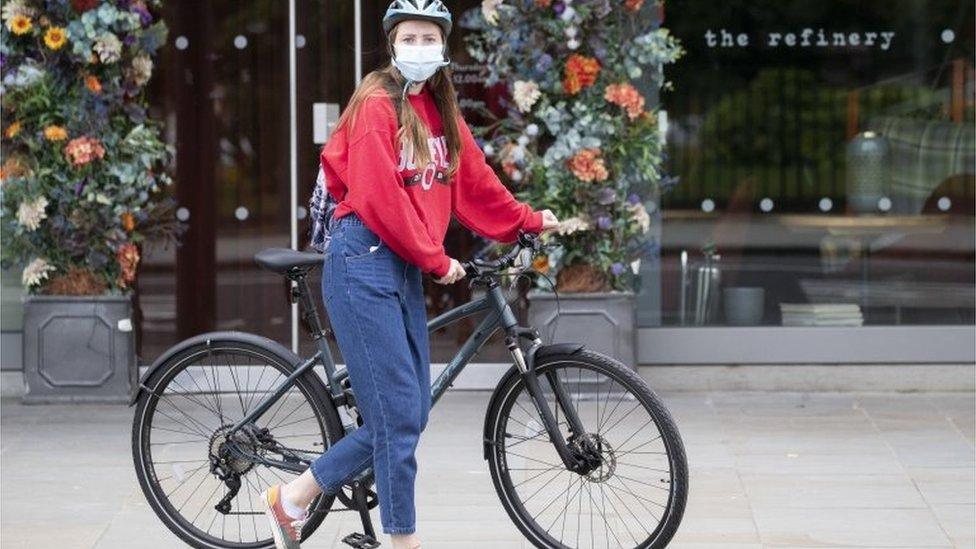
Cycling has grown in popularity during lockdown
Purchase insurance and buy two locks, is the top tip from Cycling UK's Lauren Purdy.
"Bike locks are there to foil the opportunist thief, and slow down the professional," she says.
"Nothing can offer 100% protection, but if a bike thief scans the stands and sees that it will take more than a minute to breach your locks, they will be deterred and look for an easier target."
According to the Crime Survey for England and Wales, external, there were 84,545 bike thefts recorded by police from April 2019 to March 2020.
But charity Cycling UK - which aims to "protect the interests of existing and would-be cyclists" - says the figures are likely much higher because it's an underreported crime.
What locks should I buy?
Lauren advises looking for "Sold Secure" locks, ideally with the highest rating - "gold", especially if cyclists are in a big town or city and leaving their bike locked for more than an hour at a time.
A "silver" rated lock will be cheaper and is suitable if your bike does not draw attention and is locked for less than an hour, she says, adding that she would avoid "bronze" level locks.
There are a range of locks available - from thin wires to thick chains - but cyclists will also have to think about what they are able to carry.
Lauren's Cycling UK colleague Victoria Hazael says thin wires are "more properly called immobilisers, not locks" and are "fine for cafe and loo stops" where the bike is not out of sight for long.
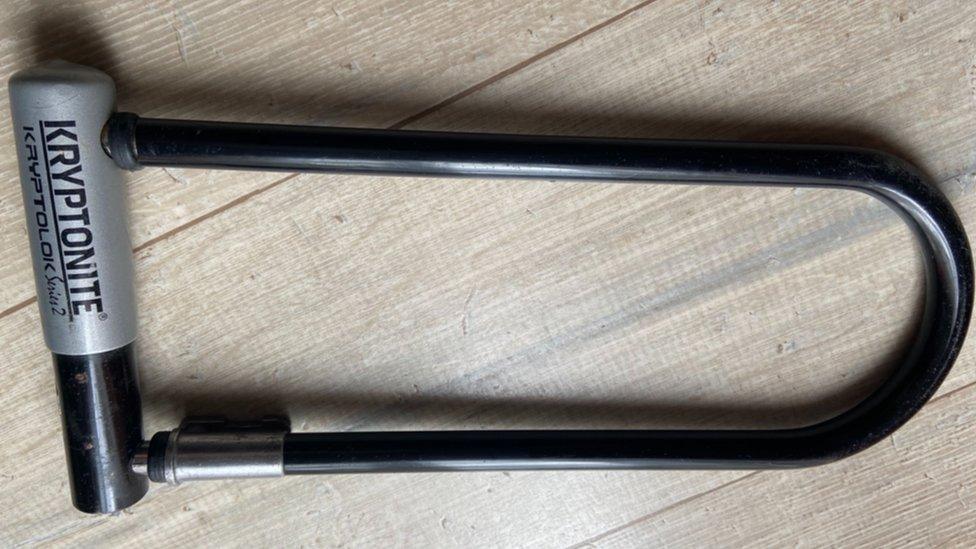
A U-lock (or D-lock) should deter opportunist thieves, experts say
She says U-locks (or D-locks) "are probably the best compromise between portability and security for town cyclists as they're easily carried in brackets fixed to the frame" and should deter opportunist thieves.
But it is a motorcycle-style security chain that offers the best protection, she says - if you don't mind the weight of carrying it round when cycling all day.
Where should I lock my bike?
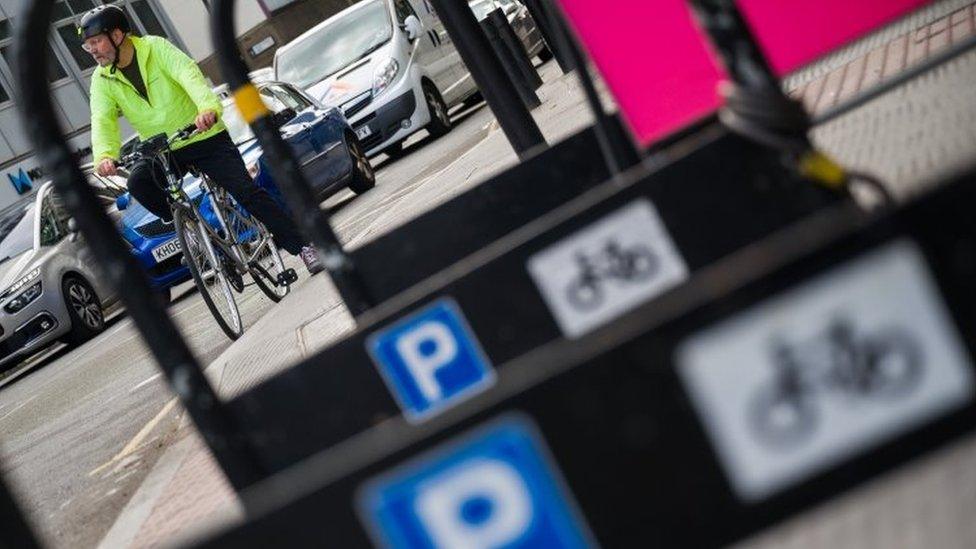
Cyclists should make sure they lock their bikes in a secure and a well-lit location covered by CCTV, with lots of people walking past.
Sam Jones, our third helpful expert from Cycling UK, warns that a lot of bike thefts are reported as thefts from the home - so even in a shed your bike should be locked to something immovable.
How is best to lock my bike?
"Lock your bike according to value," Lauren says. "This means, lock your frame first, then your back wheel, then your front wheel."
As a minimum, cyclists should secure their first lock through the frame of the bike to the object they are locking it to and back through the back wheel.
The preferable option, she says, would be to then add a second lock through the front wheel, frame and the object you're locking it to.
"Try to make sure you leave as little wiggle room as possible between the object, chain/lock, and bike - this makes it more difficult for thieves to slip tools in between to create leverage," she adds.
What about my saddle?
"If you have quick release, take the saddle with you," Sam says. Otherwise loop an extra cable through the "stays" of the bike
Another tactic would be to create a permanent anchor from saddle to frame with an old bike chain fed through an inner tube.
How can I register my bike?
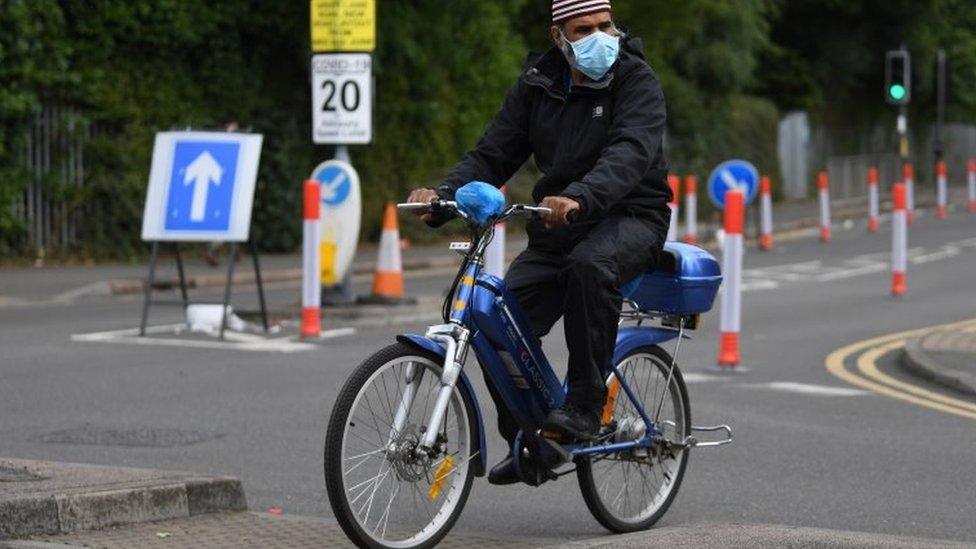
Cyclists can register their bike with schemes such as Immobilise, external or BikeRegister, external - which can be accessed by police and can increase your chances of being reunited with your bike in the event it is stolen.
BikeRegister says there has been a "significant spike" in the number of thefts after lockdown, with 786 reports to them in June - up 48% compared with the same time last year.
Managing director James Brown says all new cyclists should get their bikes registered and security marked "as soon as possible".
"Thieves will have struggled to commit crimes during lockdown due to the restrictions that were in place," he said.
"However, as these restrictions are starting to ease and people are moving around more, criminals are facing an easier task, and they have the bonus of being able to target the thousands of new bikes bought during the last few months."
What else can I do?
Supt Mark Cleland, from British Transport Police, takes the lead on tackling and preventing cycle crime in the UK and he advises: "There has been a huge surge in the purchase and use of bicycles during the pandemic and as we all exit lockdown there is a risk that criminals will benefit from poor locks and a lack of knowledge relating to what good cycle security looks like."
His top tips are:
register your bike and mark it
record as many details of your bike as possible such as the make and model as well as all the dents
double lock your bike with the best locks you can afford (ideally gold standard)
remove the removable bits when you lock it up
park your bike somewhere secure (whether home or away)
share the love - tell someone who owns a bike about this guidance
What about second-hand bikes?
"If the price is too good to be true, there's probably an angry ex-owner somewhere filling out an insurance claim," Victoria from Cycling UK says.
Potential buyers should check the bike frame number against an online database such as BikeRegister and ask questions about the bike, including whether the seller has the original documents or a receipt.
"Find out as much information as you can about the bike you are buying," she says.
"If it turns out you have bought a stolen bike and the original owner can be traced, you will be forced to give the bike back and it will be a long and complicated process to try and get your money back from the thief."
- Published7 July 2020
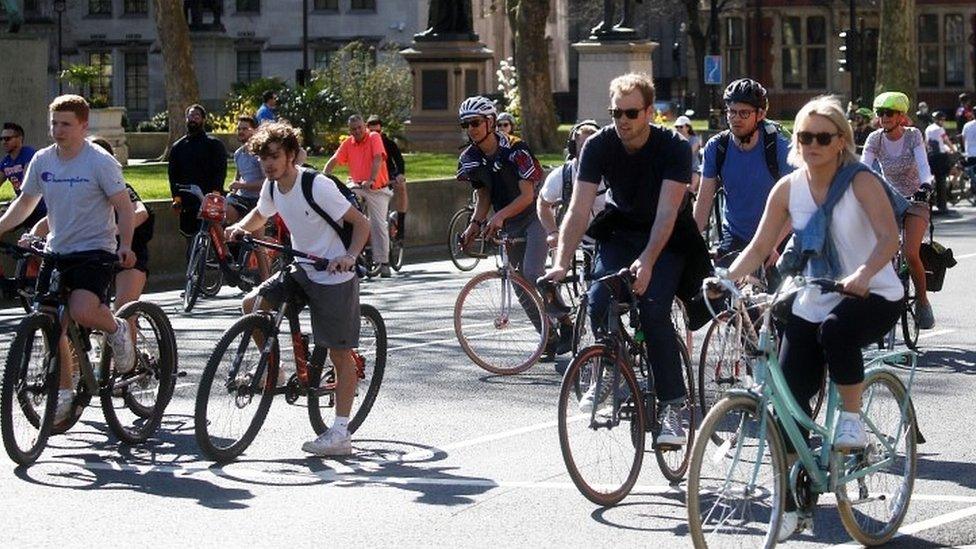
- Published2 June 2020
